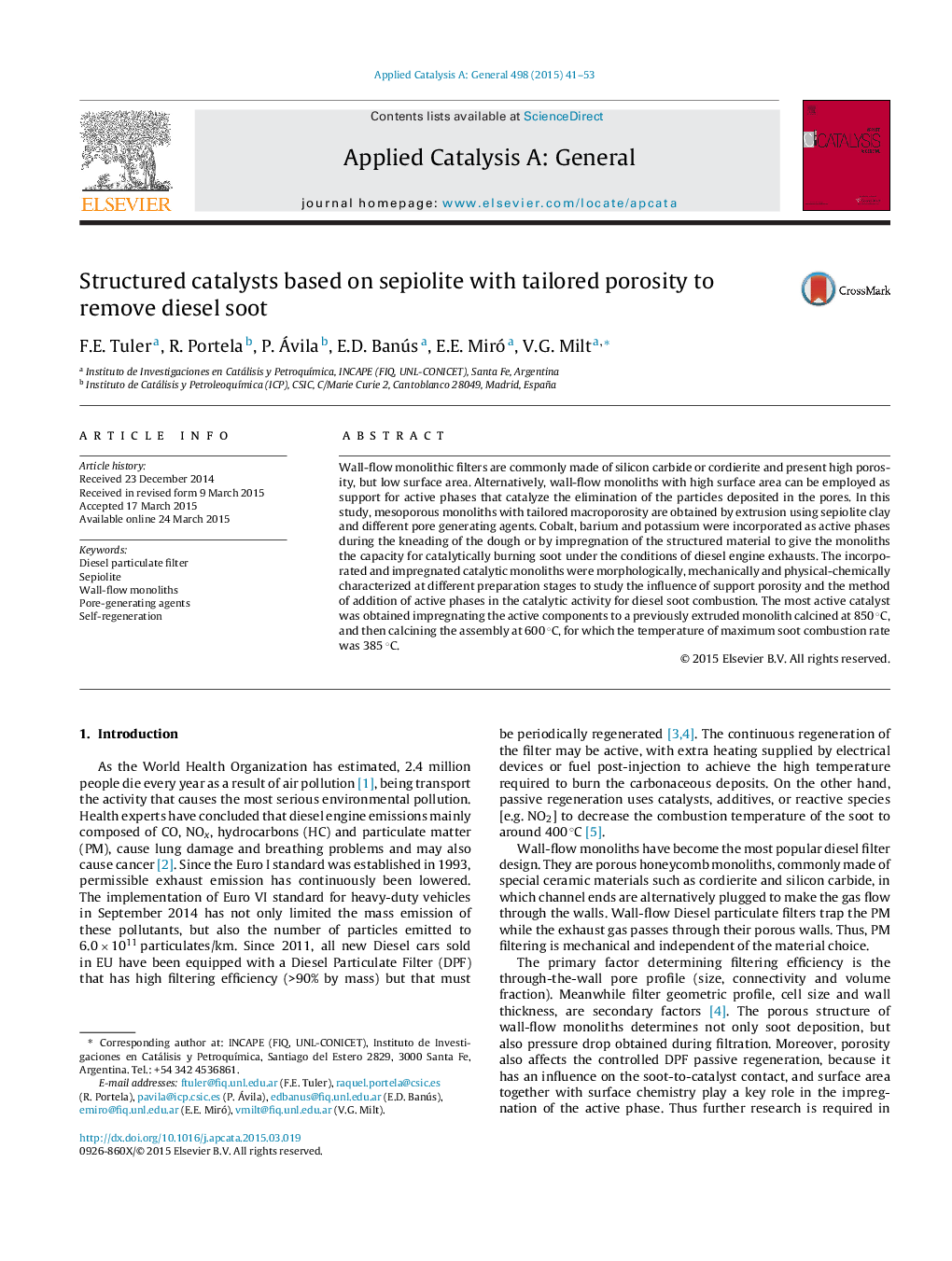| Article ID | Journal | Published Year | Pages | File Type |
|---|---|---|---|---|
| 39116 | Applied Catalysis A: General | 2015 | 13 Pages |
•Wall-flow particulate filters were prepared for diesel soot abatement.•Natural sepiolite clay was used for the preparation of honeycomb and disc monoliths.•The porosity of the filters was tuned by the addition of pore generating agents.•Cobalt, barium and potassium were impregnated to develop catalytic activity.•Under tight contact the temperature of maximum soot combustion was 365 °C.
Wall-flow monolithic filters are commonly made of silicon carbide or cordierite and present high porosity, but low surface area. Alternatively, wall-flow monoliths with high surface area can be employed as support for active phases that catalyze the elimination of the particles deposited in the pores. In this study, mesoporous monoliths with tailored macroporosity are obtained by extrusion using sepiolite clay and different pore generating agents. Cobalt, barium and potassium were incorporated as active phases during the kneading of the dough or by impregnation of the structured material to give the monoliths the capacity for catalytically burning soot under the conditions of diesel engine exhausts. The incorporated and impregnated catalytic monoliths were morphologically, mechanically and physical-chemically characterized at different preparation stages to study the influence of support porosity and the method of addition of active phases in the catalytic activity for diesel soot combustion. The most active catalyst was obtained impregnating the active components to a previously extruded monolith calcined at 850 °C, and then calcining the assembly at 600 °C, for which the temperature of maximum soot combustion rate was 385 °C.
Graphical abstractFigure optionsDownload full-size imageDownload high-quality image (341 K)Download as PowerPoint slide
